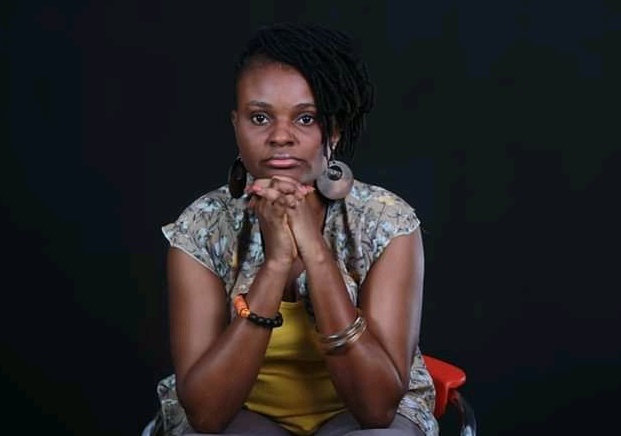Tobore Ovuorie, an investigative journalist, says she wouldn’t be in a copyright infringement war with Mo Abudu, a filmmaker, if she was given full disclosure about ‘Oloture‘ from the beginning.
Abudu had earlier denied the claims made against her with respect to the 2020 film. She had also kicked against Tobore’s demand of $5 million as compensation following the copyright infringement claims the reporter made.
In a statement on Wednesday, Tobore said that the EbonyLife CEO failed to disclose the specifics of ‘Oloture’, which she described as a 70% replica of her 2014 investigation on human/sex trafficking.
She also refuted claims that Abudu had obtained legal rights to produce ‘Oloture’ from Premium Times, her employers at the time, stating that she had started her investigation prior to being employed by the media outfit.
“EbonyLife claimed that the right to use my life story was legally obtained from my erstwhile employer – Premium Times. Unfortunately for them and as I had earlier informed them through my lawyers, the human trafficking investigation in my story had commenced prior to my employment with Premium Times,” the journalist wrote.
“It is disheartening that Aunty Mo could mention that she got the right to my life-story from my ex-employer. I am in shock that she would claim that I was contacted prior to the movie in one breath and in another that the story is not about me but about several other faceless journalists who had done what I did but did not publish experiences.
“If Ebonylife had given me full disclosure from the beginning, we would not be where we are, at this point. Oloture is an adaptation of my work and life-story. I experienced the investigation, the process, and the risks, upon which the movie is based. I also single-handedly authored the publication the movie relied on.
“The publication of my experience is what gave birth to ‘Oloture’. A movie about sex trafficking does not need to be centered around a journalist and it does not need to play out the plots of my published story. The question is, why is the open credits for the story of ‘Oloture’ bearing Mo Abudu, Temidayo Abudu, and three others?
“How ethical is that for an adapted story? Even the alleged end credit, how appropriate is it? This is not the standard practice in the industry and Ebonylife should know better. Aunty Mo’s claims that Kenneth Gyang has had to deal with daily and weekly harassments from me is completely false.”
Tobore went ahead to claim that Kenneth Gyang, the movie’s director, was warned about the implications of taking up ‘Oloture’ after being informed of what she described as “the actual source of the story” behind the movie script.
The 40-year-old reacted to Abudu’s dismissal of her demand for $5 million compensation and denied harassing the producers of the movie on social media. According to her, a film on exploitation shouldn’t be exploitative in itself.
“On October 4th, 2020 Kenneth confessed in the Premium Times story that he became aware of the ‘Oloture’ story, two weeks before release. A film director whom I had worked with on a 30 minutes documentary on this same story in 2016 told Kenneth the actual source of the story and had warned him of the consequences,” Tobore added.
“Kenneth Gyang contacted me to grant an audio interview to DW, but my lawyers had advised me against further media engagement on the subject. I also considered Kenneth’s disposition when he asked for this, and rather than mincing my words in an interview that came through Kenneth Gyang, I decided not to grant it.
“It would be morally wrong for me to grant such an interview when he is the person that released my contacts to the reporter who reached me then. Aunty Mo’s claim that I am doing this because Oloture traveled far is a deliberate attempt at mischief. The question is if the decision to tag this movie a fiction was an attempt at maximizing profit?
“The allusion to the fact that my claim for compensation was outrageous when I’m claiming infringement of intellectual property right, shows a lot needs to be done in terms of re-orientation for the entertainment landscape in Nigeria. My interest had always been to be given appropriate credit for my work, far above compensatory claims.
“The making of a film on exploitation should not itself be exploitative. I almost died (and I saw death) when I took a 7-month long journey to investigate human trafficking. Now, I am going through the ordeal a second time watching my life story on TV, without full credit or compensation, and the subsequent campaign of calumny.”
Alongside her monetary demands, Tobore finally asked Abudu to immediately include “proper open credit and end credit” in the movie acknowledging the adaptation of her work in line with movie industry standards and practices.
She also demanded that Abudu ceases further “exploitation” of the 2014 story through Ebony Life and its affiliates.
Copyright 2025 TheCable. All rights reserved. This material, and other digital content on this website, may not be reproduced, published, broadcast, rewritten or redistributed in whole or in part without prior express written permission from TheCable.
Follow us on twitter @Thecablestyle

